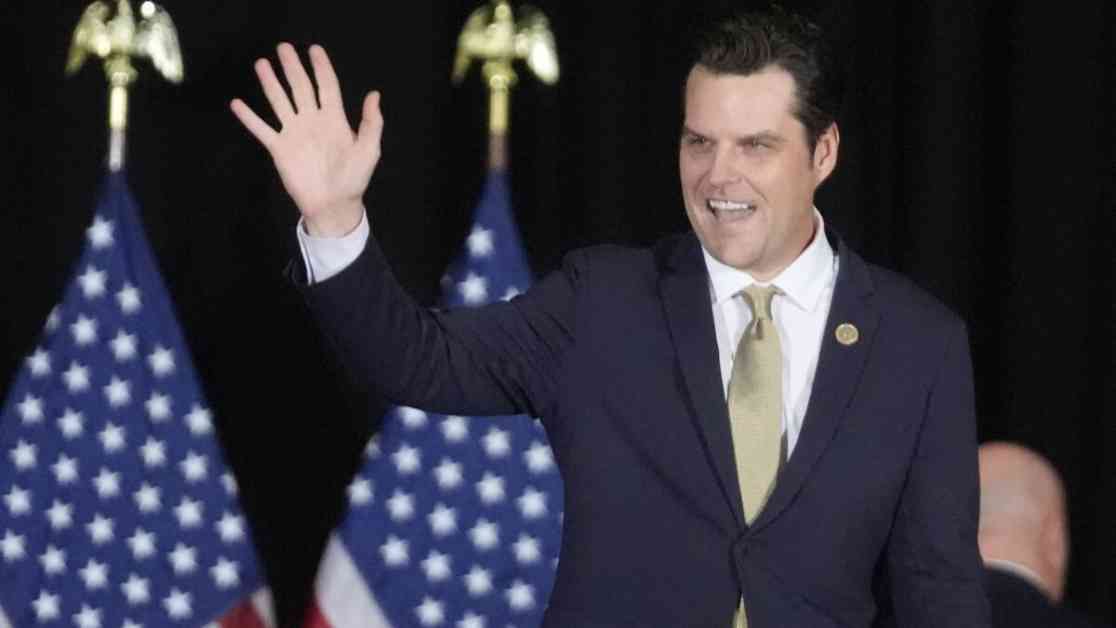President-elect Donald Trump’s nominee for attorney general, former Rep. Matt Gaetz, faced swift opposition from Senate Republicans, leading to his withdrawal. In response, Trump nominated former Florida Atty. Gen. Pam Bondi, a long-time loyalist, to the position. Gaetz cited not wanting to be a distraction for the Trump transition as his reason for stepping down.
The allegations that Gaetz paid for sex with a minor and used illicit drugs were significant factors in his withdrawal. Senate Republicans, including Minority Leader Mitch McConnell and Sen. Charles E. Grassley, expressed support for Gaetz’s decision to withdraw, indicating that his nomination was unlikely to succeed. Republicans like Ronna McDaniel acknowledged that Gaetz’s confrontational approach may have contributed to his downfall.
Despite Gaetz’s withdrawal, the future of Trump’s other nominees remains uncertain. Some experts believe that Senate Republicans may not apply the same level of scrutiny to future nominees as they did with Gaetz. The withdrawal also raises questions about other controversial nominees, such as Pete Hegseth, who is facing allegations of sexual assault.
The withdrawal of Gaetz highlights the limits of Trump’s power in his second term, even with a supportive Congress and Supreme Court. Gaetz’s lack of experience, false conspiracy theories, and strained relationships with fellow lawmakers all contributed to his downfall. His departure may pave the way for Bondi’s confirmation, as many senators are hesitant to challenge the president-elect.
The release of a police report detailing allegations against Hegseth adds another layer of complexity to Trump’s nominee confirmation process. While Hegseth denies the accusations, some Republicans are standing by him, citing his focus on national security and strength.
In response to Gaetz’s withdrawal, right-wing activist Charlie Kirk is mobilizing support for Trump’s remaining Cabinet nominees. Kirk’s organization plans to hold rallies in conservative states to encourage senators to approve Trump’s picks. The outcome of these efforts remains to be seen as the confirmation process continues.
Overall, Gaetz’s withdrawal underscores the challenges of navigating the nomination process in a divided political landscape. The fallout from his nomination may influence future appointments and the dynamics between the executive branch and Congress. As the transition unfolds, the fate of Trump’s remaining nominees will be closely watched by both supporters and critics.
Additional Information:
It is essential to examine the implications of Gaetz’s withdrawal on Trump’s broader agenda and the confirmation process for future nominees. The impact of Gaetz’s controversial nomination on the political landscape could shape the dynamics between the executive and legislative branches in the coming months. Furthermore, the scrutiny faced by nominees like Hegseth sets a precedent for how allegations of misconduct are handled in the confirmation process. As the political climate continues to evolve, the fallout from Gaetz’s withdrawal may reverberate throughout the administration’s efforts to fill key positions and implement its policy agenda.



























